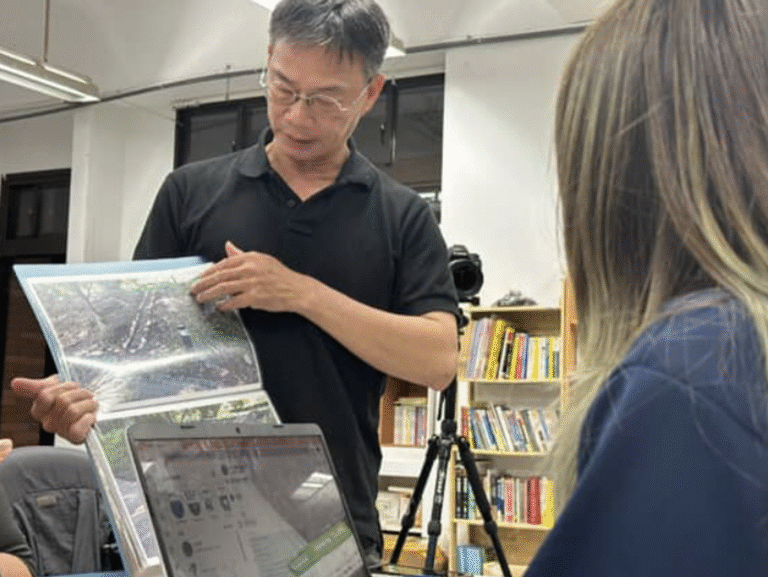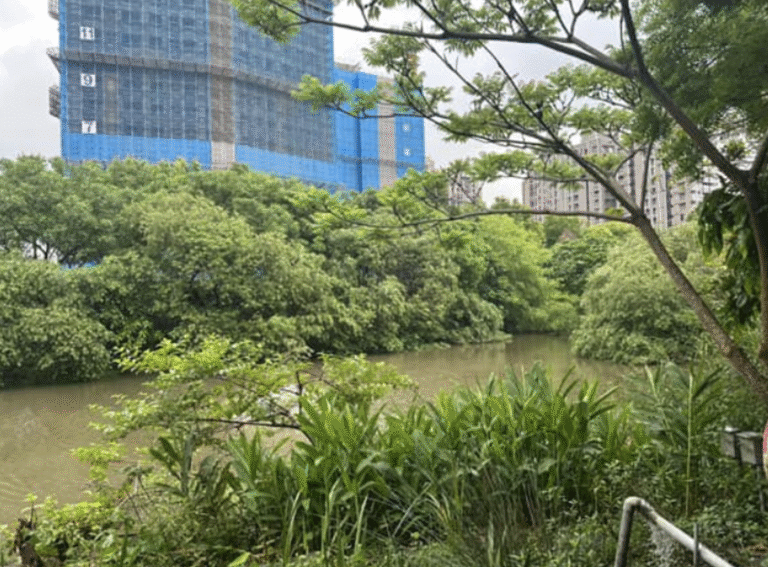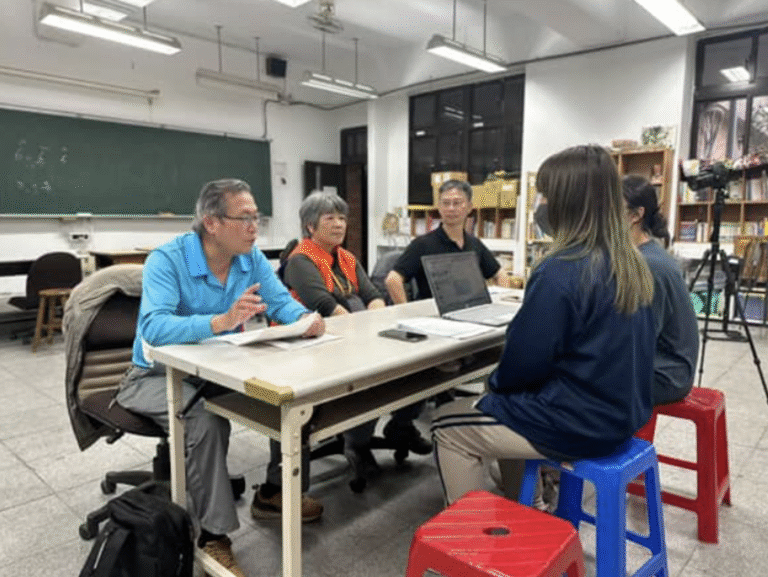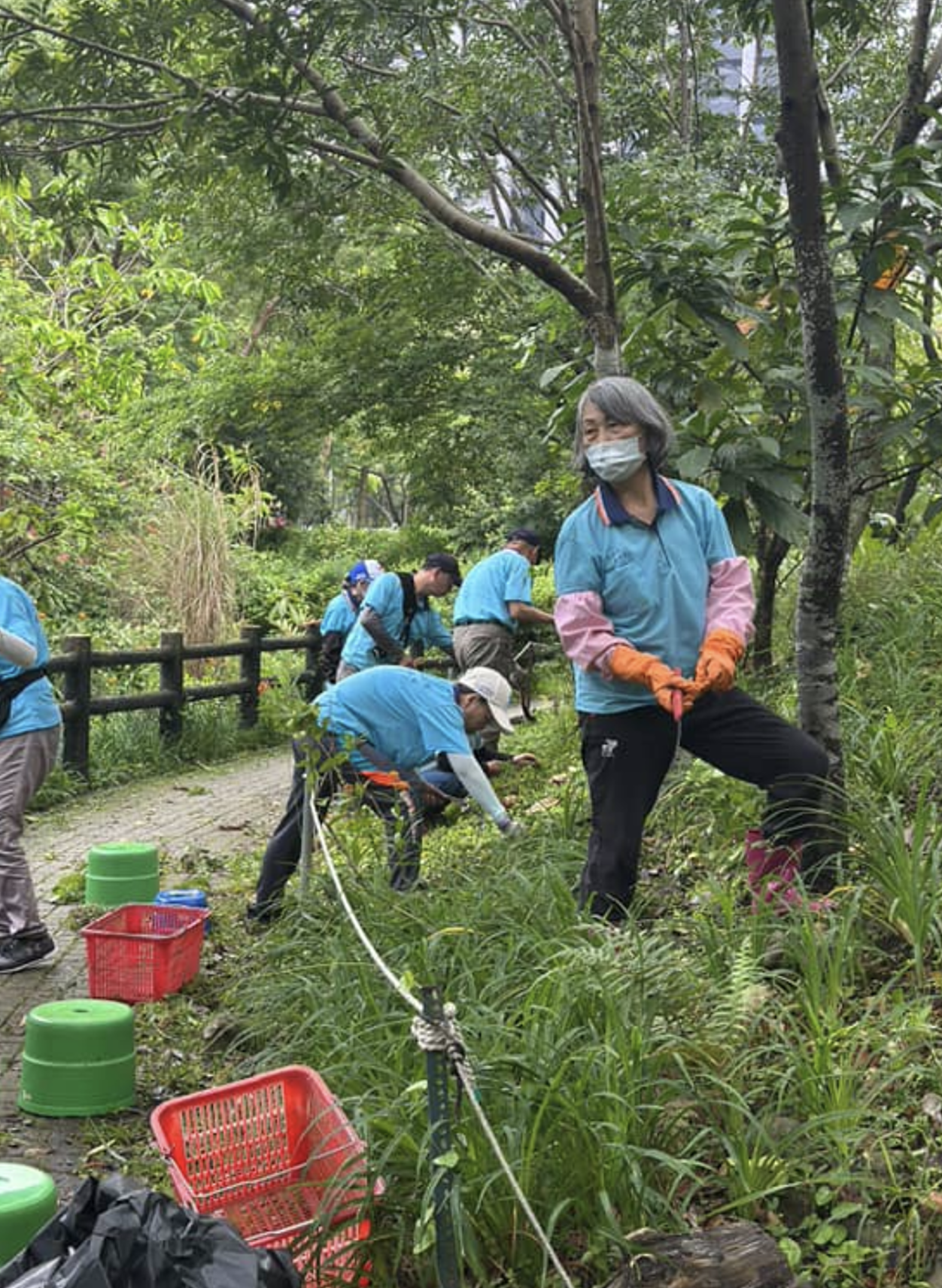This is a series of report about local sustainable actions in Xinzhuang, written by students from Hsin Chuang High School. Under the guidance of their teacher – Mr. Tino Huang, students observe sustainable actions from local community, and develops their own news report to record those discoveries in English.
Wetland Service Team
Wetlands, these seemingly insignificant plots of land, play a crucial role in the ecosystem. They are not only habitats for aquatic species but also filter water, regulate the climate, and are indispensable in preventing flooding and soil erosion. The Xinzhuang Wetland Volunteer Service Team is one such group dedicated to the protection and restoration of wetland ecosystems. Since its establishment, it has gone through nearly two decades of history. It all began in 2008, when Taipei County deputy mayor, Li Hong-Yuan, proposed the “West District Flagship Project,” aimed at improving the environment of the western district of New Taipei City, especially the long-neglected Zhonggang Drain. This area had been revitalized during the 1970s with a drainage improvement project, but over time, garbage, sewage, and destructive activities caused it to fall into disrepair once again. To restore this wetland, the government decided to launch a second restoration plan, and this time, the involvement of volunteer groups became a key part of the initiative. At that time, the collaboration with Xinzhuang Community College became an important starting point for wetland conservation. The college began training volunteers and organizing them for on-site cleanups and ecological surveys. The establishment of the Wetland Service Team provided many local residents who are interested in their environment an opportunity to engage in this kind of natural activity.
Mr. Wang, one of the founding members of the Wetland Service Team, played an important role in this process. He recalled, “Our mission back then was simple: to prevent this wetland from being polluted again and to help more people understand its importance.” However, with the promoted of New Taipei City to a full special-municipality city in 2011, the city’s fiscal and policy adjustments gradually reduced the support than before. Especially in funding for the Wetland Service Team, the city government was unable to provide enough financial resources, putting the team at risk of dissolution. Mr. Wang admitted, “If we couldn’t find new support, the team might have been disbanded. It would have been a blow to our volunteers and a huge loss for wetland conservation.” Just when the Wetland Service Team was facing the crisis of disbandment, Mr. Wang and the other team members did not give up. They proposed a new solution: to return the operation of the Wetland Service Team under community college as a club. This approach received support from the college, successfully preventing the team from disbanding. With this transformation, the Wetland Service Team not only continued to maintain the wetlands but also trained more volunteers, expanding the influence of environmental actions.

Operation and Challenges
The issue of funding is their biggest challenge. Mr. Wang pointed out that, although the community college provides some support, the main funding for the Wetland Service Team still relies on volunteer’s membership fees. Initially, the membership fee was set at 1000 NT dollars, but in order to reduce the financial burden, it was later adjusted to 500 NT dollars. For most volunteers, this fee is not considered high, but it still proves difficult to meet the large-scale construction and maintenance needs. Mr. Wang explained, “Although we receive some subsidies from the government and support in terms of tools, these resources are far from sufficient to carry out large-scale reconstruction and ecological restoration.”
To overcome this challenge, the Wetland Service Team began exploring innovative ways to raise funds. For example, they actively sought corporate adoption partnerships. However, due to the nature of the community college, the Wetland Service Team did not want to rely too heavily on corporate donations, especially those from companies that might have political or religious interests. Mr. Wang emphasized, “We want to maintain the independence of the Wetland Service Team and focus on environmental protection without letting money or other interests interfere.”
Despite facing the dual challenges of funding and collaboration, the volunteers of the Wetland Service Team remain committed to their mission of protecting the wetlands, continuously striving with limited resources. Today, their goals have become clearer: to transform the Wanzi Wetland into an ecological education site and turn it into a certified environmental education base. This is not just a physical transformation of the space, but a shift in societal awareness—helping more people understand the importance of wetlands in the ecological environment and encouraging them to participate in conservation efforts.

Future Vision
Mr. Wang stated, “Ultimately, we hope to transform this wetland into a sustainable ecological park, a place where the public can learn about ecological conservation. Every step we take is laying the foundation for the future.” However, he also acknowledged that this is a long and challenging journey. From ecological restoration to volunteer training, and the construction of facilities, every task requires steady progress.
As for the future, Mr. Wang is not overly optimistic. He knows that achieving these goals will require not only more time but also more financial support. Despite this, he firmly believes that no matter how difficult the road may be, as long as more people are involved in this cause, the future of wetland conservation will undoubtedly be brighter. “The Wetland Service Team is just a part of this effort. Such a force requires the support of society as a whole to keep pushing the mission of wetland protection forward.”

Attitudes Learned
The story of the Xinzhuang Wetland Service Team is one filled with perseverance and struggle. They have faced challenges such as financial shortages, collaboration difficulties, and administrative bottlenecks, but they have never given up on protecting the wetlands or their hopes for the future. Mr. Wang and his team are the epitome of ordinary yet resilient volunteers. Every bit of their effort is laying the groundwork for the wetlands’ future and showing us the infinite possibilities of protecting nature and preserving the ecosystem.



